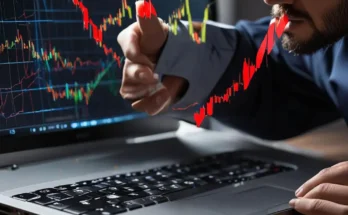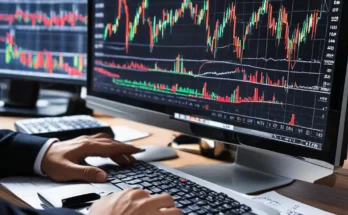Forex trading, or foreign exchange trading, involves the buying and selling of currencies in a global market. Successful forex trading requires an understanding of various factors that influence currency prices, including economic events and data releases. Economic calendars are essential tools that help traders stay informed about these events and make informed trading decisions.
This article will explore how to use economic calendars for forex trading, identify the best economic calendars available, discuss the role of economics in forex trading, and determine the most profitable time frame to trade in forex.
How to Use Economic Calendars for Forex Trading
An economic calendar is a schedule of upcoming economic events, such as data releases, speeches by central bankers, and other events that can impact financial markets. Here’s how you can effectively use an economic calendar for forex trading:
- Choose a Reliable Economic Calendar: Start by selecting a reputable economic calendar. Many financial websites and trading platforms offer free economic calendars. Ensure that the calendar you choose provides accurate and up-to-date information.
- Understand the Impact of Events: Not all economic events have the same impact on the forex market. Major events, such as central bank interest rate decisions, GDP reports, and employment data, can significantly influence currency prices. Familiarize yourself with the types of events listed on the calendar and their potential market impact.
- Set Alerts and Reminders: Most economic calendars allow you to set alerts and reminders for upcoming events. This feature can be particularly useful for traders who want to be notified before significant data releases or speeches.
- Plan Your Trades Around Key Events: Use the information on the economic calendar to plan your trades. For instance, if you know that a central bank is scheduled to announce an interest rate decision, you might want to avoid trading just before the announcement due to potential volatility. Alternatively, you could use the event to your advantage by positioning yourself for a potential price movement.
- Analyze Historical Data: Economic calendars often provide historical data for past events. Analyzing how previous events impacted the market can help you predict potential future movements and adjust your trading strategy accordingly.
- Integrate Technical and Fundamental Analysis: While economic calendars focus on fundamental analysis, it’s essential to integrate technical analysis into your trading strategy. Use technical indicators to identify entry and exit points and combine this information with the insights gained from the economic calendar.

What is the Best Economic Calendar for Forex?
There are several economic calendars available, each with its own features and benefits. Here are some of the best economic calendars for forex traders:
- Forex Factory: Forex Factory is a popular choice among forex traders. It offers a comprehensive economic calendar with real-time updates, detailed event descriptions, and historical data. The calendar is highly customizable, allowing traders to filter events by currency, impact level, and date.
- Investing.com: Investing.com provides a detailed economic calendar with real-time updates and a wide range of filters. The platform also offers additional tools, such as market analysis, news, and educational resources, making it a valuable resource for traders.
- DailyFX: DailyFX is known for its extensive market analysis and educational content. Its economic calendar is user-friendly and provides detailed information on upcoming events, including the expected impact on the market. DailyFX also offers expert commentary and analysis, helping traders make informed decisions.
- Myfxbook: Myfxbook’s economic calendar is another excellent option for forex traders. It features a clean and intuitive interface, real-time updates, and customizable filters. Myfxbook also offers a range of tools and resources for traders, including performance tracking and social trading features.
- MetaTrader: Many forex brokers offer economic calendars directly on their trading platforms, such as MetaTrader. These calendars are integrated with the trading platform, making it easy for traders to access and use the information while placing trades.
Can Economics Help in Forex Trading?
Economics plays a crucial role in forex trading. Understanding economic principles and how they impact currency prices can give traders a significant advantage. Here are some ways economics can help in forex trading:
- Understanding Supply and Demand: At its core, forex trading is driven by supply and demand. Economic factors, such as interest rates, inflation, and GDP growth, influence the supply and demand for currencies. By understanding these factors, traders can make more informed predictions about currency movements.
- Analyzing Economic Indicators: Economic indicators, such as employment data, retail sales, and manufacturing output, provide insights into the health of an economy. Positive economic indicators generally strengthen a currency, while negative indicators weaken it. By analyzing these indicators, traders can anticipate potential price movements.
- Interpreting Central Bank Policies: Central banks, such as the Federal Reserve and the European Central Bank, play a significant role in the forex market. Their policies, including interest rate decisions and quantitative easing measures, impact currency prices. Understanding central bank policies and their potential implications can help traders make better trading decisions.
- Predicting Market Sentiment: Economic events and data releases often influence market sentiment. For example, a strong GDP report can boost investor confidence and lead to a stronger currency. Conversely, disappointing economic data can lead to a weaker currency. By staying informed about economic developments, traders can gauge market sentiment and adjust their strategies accordingly.

Which is the Most Profitable Time Frame to Trade in Forex?
The profitability of a time frame in forex trading depends on various factors, including the trader’s strategy, risk tolerance, and market conditions. Here are some commonly used time frames and their potential advantages:
- Short-Term (Intraday) Trading: Short-term trading involves making multiple trades within a single day. Common time frames for short-term trading include 1-minute, 5-minute, and 15-minute charts. This approach can be profitable for traders who prefer quick gains and can dedicate significant time to monitoring the market. However, it also requires a high level of discipline and the ability to react quickly to market changes.
- Medium-Term (Swing) Trading: Medium-term trading, or swing trading, involves holding positions for several days to weeks. Common time frames for swing trading include 1-hour, 4-hour, and daily charts. Swing trading allows traders to capitalize on short- to medium-term price movements and is suitable for those who cannot monitor the market continuously. It also provides more time for analysis and decision-making compared to short-term trading.
- Long-Term (Position) Trading: Long-term trading involves holding positions for weeks, months, or even years. Common time frames for long-term trading include daily, weekly, and monthly charts. This approach is suitable for traders who prefer a more passive trading style and are willing to hold positions through market fluctuations. Long-term trading requires a thorough understanding of fundamental analysis and economic trends.
Ultimately, the most profitable time frame for forex trading depends on the individual trader’s preferences and strategy. Some traders may find success with short-term trading, while others may prefer the stability and lower stress of long-term trading. It’s essential to experiment with different time frames and find the one that best suits your trading style and goals.
Conclusion
Economic calendars are invaluable tools for forex traders, providing crucial information on upcoming economic events and data releases. By using economic calendars effectively, traders can plan their trades, anticipate market movements, and make informed decisions.
Understanding the role of economics in forex trading, selecting a reliable economic calendar, and choosing the most profitable time frame for trading are key components of a successful trading strategy. By combining these elements with technical analysis and disciplined risk management, traders can enhance their chances of success in the forex market.




